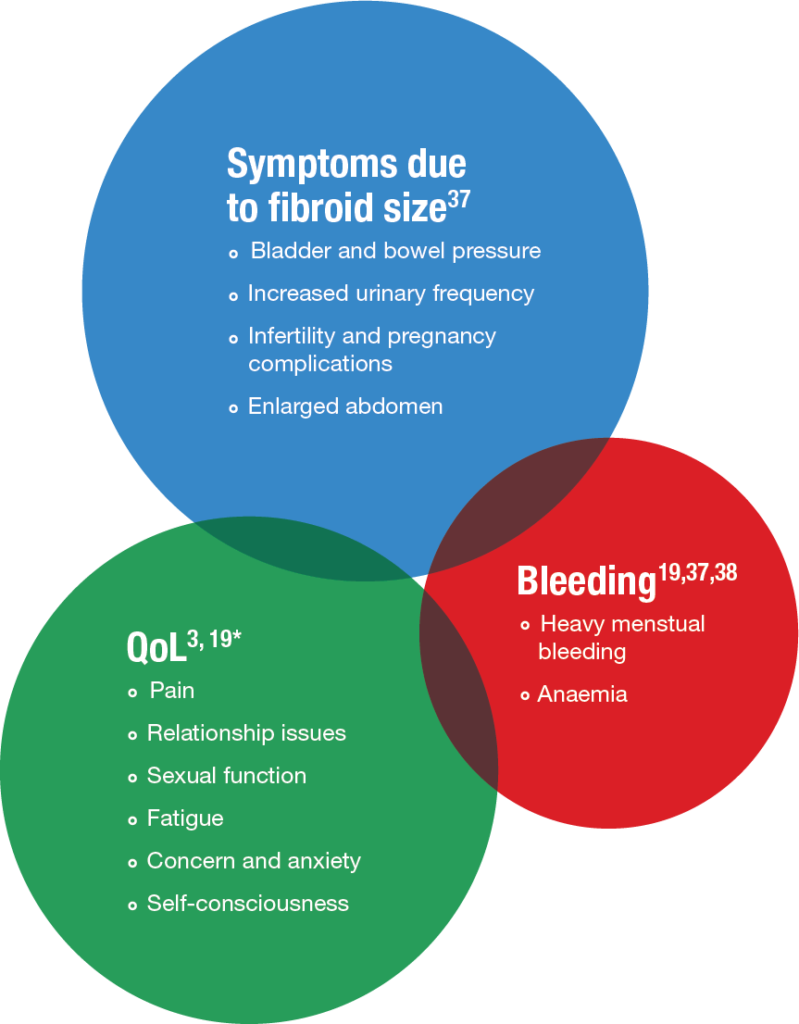Click here to discover risks factors impacting uterine fibroids.
In most women symptoms are mild, and no treatment or pharmacological therapy will be required. However, some women experience symptoms that would be described as moderate or severe. Those women typically require pharmaceutical therapy.
Beyond their physical morbidity, uterine fibroids are a frequent cause of significant impairment of quality of life (QoL). In particular, abnormal uterine bleeding is one of the most frequently disabling symptoms of uterine fibroids, and this has associated physical, social and financial implications (including lower employment rates, more frequent absence from work, and loss of earnings in women). It is thought approximately 30% of symptomatic women suffer from abnormal bleeding which can negatively impact them due to feelings of self-consciousness and a reduction in their quality of life. Severe bleeding can also lead to severe iron deficiency, otherwise known as anaemia, which in its own right can cause fatigue, feelings of weakness and shortness of breath following exertion.
The main symptoms common with uterine fibroids are:
* The Uterine Fibroid Symptom and Quality of Life (UFSQOL) questionnaire3,4.


